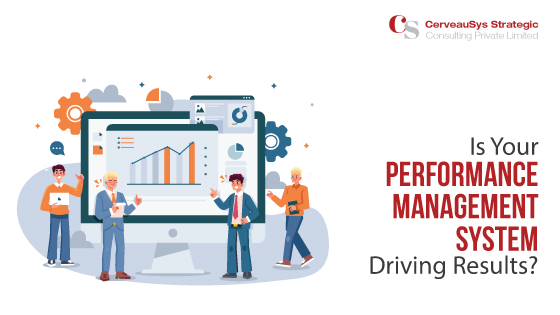Is Your Performance Management System Driving Results?
Performance management is a critical factor in determining the success of any organization. It is no longer just about evaluating employees annually; instead, it’s a continuous process that aligns individual goals with organizational objectives.
According to Deloitte, “The redesign of performance management is picking up speed: 79 percent of executives rate it a high priority, up from 71 percent three years ago, with 38 percent calling the problem “very important.”
So, is your performance management system truly driving results, or is it simply a check-the-box exercise? Let’s dive into elements to ensure your system is effective and actionable. Whether you are a startup looking for a performance management system or a well established organization, learn best practices for creating an effective performance management system that drives engagement, organizational growth, and sustained results. Let’s begin!
1. Set Clear, Measurable, and Aligned Goals
Define clear goals using the SMART framework to align individual, team, and organizational objectives. Break organizational goals into cascading objectives to ensure each department contributes to the overall vision. Communicate these goals effectively, emphasizing the “why” behind tasks to motivate employees. Collaborative goal setting fosters ownership and accountability, while regular reviews help track progress and adapt to changes. Clear goals with a performance management system establish direction, align efforts, and ensure sustained focus on organizational priorities.
2. Foster Continuous Feedback and Open Communication
Shift from annual appraisals to continuous feedback to support real-time growth and adjust performance. Encourage open, two-way communication where employees can share ideas and concerns while receiving constructive feedback. Train managers to deliver balanced input, highlighting achievements and improvement areas. Open communication fosters trust and collaboration, while regular check-ins enhance engagement. A feedback-rich environment empowers employees, driving higher performance and fostering a culture of continuous learning and adaptability.
3. Link Performance to Development
Integrate personalized development plans into performance management, addressing skill gaps and career aspirations. Offer employees access to training, mentorship, and cross-functional projects to support their growth. Development-focused management enhances employee retention, showing investment in their careers. Continuously review roles and responsibilities to adapt to organizational changes. Aligning performance improvement with professional growth energizes employees while ensuring skill development aligns with company objectives, creating a mutually beneficial scenario.
4. Embrace Technology for Performance Insights
Leverage performance management tools for accurate goal tracking, feedback, and analytics. Advanced software automates processes, reducing bias, and offering actionable insights with dashboards and analytics. Employees benefit from self-service tools to track progress, engage with feedback, and stay updated on goals. Technology promotes transparency, fairness, and data-driven decisions while improving efficiency. The right tools modernize performance systems, driving engagement and boosting organizational productivity.
5. Recognize, Reward, and Celebrate Achievements
Show appreciation through timely, personalized rewards to motivate employees. Go beyond monetary incentives; consider flexible work options, training opportunities, or public recognition. Frequent recognition reinforces desired behaviors and maintains morale. Celebrate team successes to foster collaboration and build a supportive culture. Employees perform better when their contributions are valued. A robust recognition program strengthens engagement, loyalty, and productivity, ensuring everyone feels like an essential part of the organization’s success. If your current system isn’t driving these outcomes, it may be time to revamp your performance management approach for better results.
6. Promote a Culture of Accountability
Embed accountability into workplace culture by setting clear expectations and responsibilities. Encourage self-assessment and ownership of tasks to foster proactive improvement. Leaders must model accountability, owning mistakes and highlighting solutions for team members to do the same. Use structured check-ins and constructive feedback to promote responsibility without micromanaging. Celebrate accountability by pairing it with recognition to create positive reinforcement. Employees delivering on commitments drive consistent team and organizational success.
Partner with Us for an Effective Performance Management System
An effective performance management system isn’t just about processes and metrics; it’s about fostering a culture where employees are motivated to achieve their best while aligning organizational goals with individual growth. By focusing on a performance management system for goal alignment, feedback, development, technology integration, recognition, and accountability, organizations can unlock sustainable business results and cultivate a thriving workforce.
CerveauSys Strategic is at the forefront of performance management consulting in Pune, helping organizations design systems that drive engagement and measurable outcomes. Our expertise lies in tailoring performance management strategies to meet specific organizational needs. From aligning goals and leveraging technology to building a culture of accountability, we ensure your performance management system cultivates success at every level.
Partner with us today to transform your performance management into a results-driven engine for growth and innovation.


